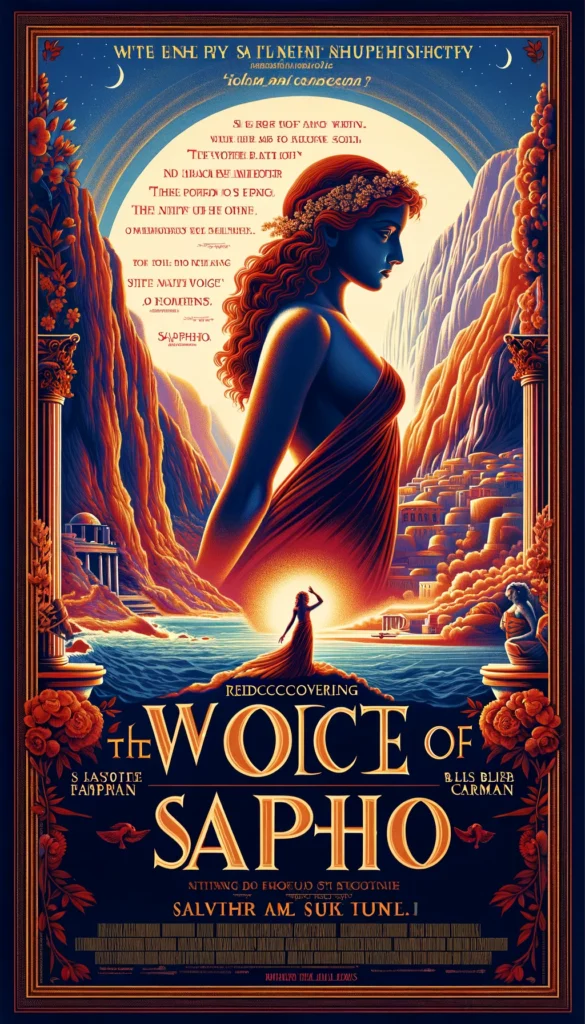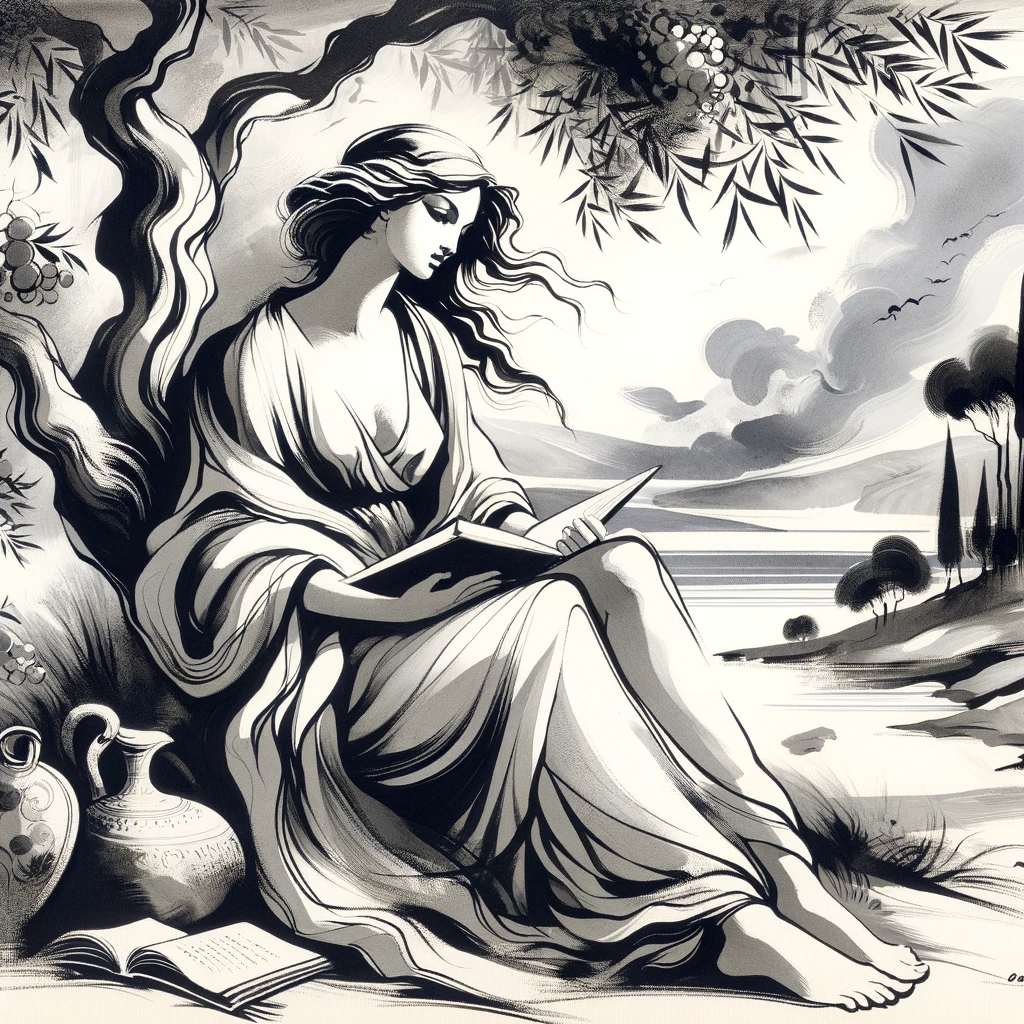The book “Sappho: One Hundred Lyrics” by Bliss Carman creatively revives the ancient Greek poet Sappho’s lost verses, presenting them in a way that resonates with the contemporary reader. Through this reconstruction, Carman does not merely translate; he reimagines the fragments into complete poems, breathing life into each piece with a modern sensibility and language that makes the ancient themes of love, desire, and human emotion vivid and relatable.
Carman’s poetic rendition is deeply emotional and richly imagistic. He skillfully uses vivid imagery and emotive language to explore profound feelings of love, longing, joy, and sorrow, allowing readers to feel the intensity of each emotion. His use of metaphor and simile paints a vivid picture of the human condition, emphasizing the timeless and universal nature of Sappho’s themes.
The cultural and historical context of ancient Greece is elegantly woven into the fabric of Carman’s poems. By referencing Greek gods and ancient customs, he provides a backdrop that enhances the authenticity and depth of the lyrical narratives. This historical layer not only educates the reader about Greek culture but also enriches the emotional texture of the poems, as they reflect the values, beliefs, and aesthetics of that era.

Additionally, Carman’s work highlights the feminine perspective, presenting a narrative centered around a woman’s voice and experience in a way that challenges the traditional narratives of his time. By focusing on Sappho, a renowned female poet, Carman elevates the expression of women’s experiences and emotions, making a significant contribution to the representation of women in literature.
Overall, “Sappho: One Hundred Lyrics” is a compelling re-creation that bridges the gap between the ancient and the modern, making the powerful insights of a classical poet accessible and relevant to a new generation. It stands out for its emotional depth, artistic imagery, cultural richness, and its reverent but imaginative revival of Sappho’s lost poetry, celebrating her as a timeless voice in the canon of great literature.


